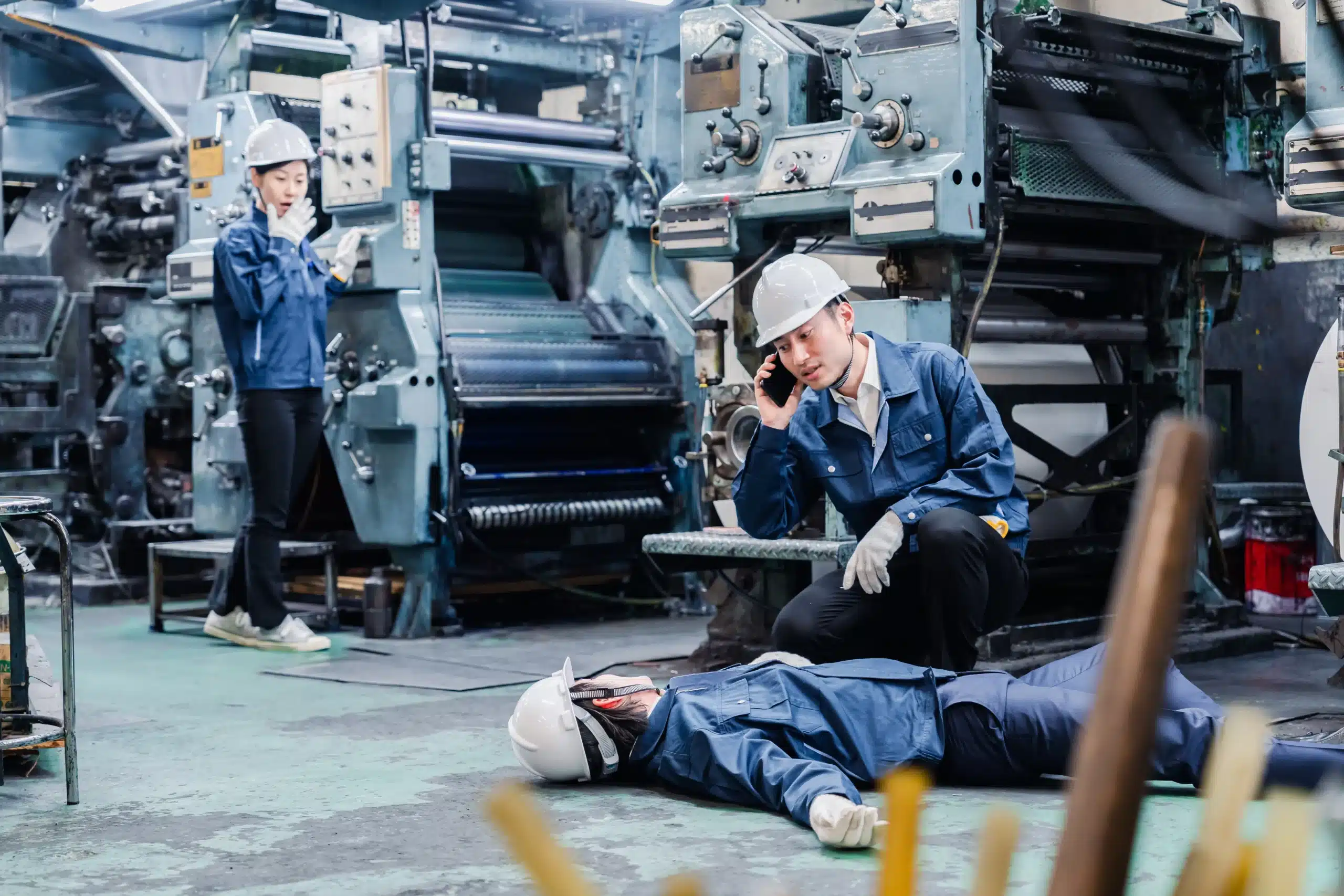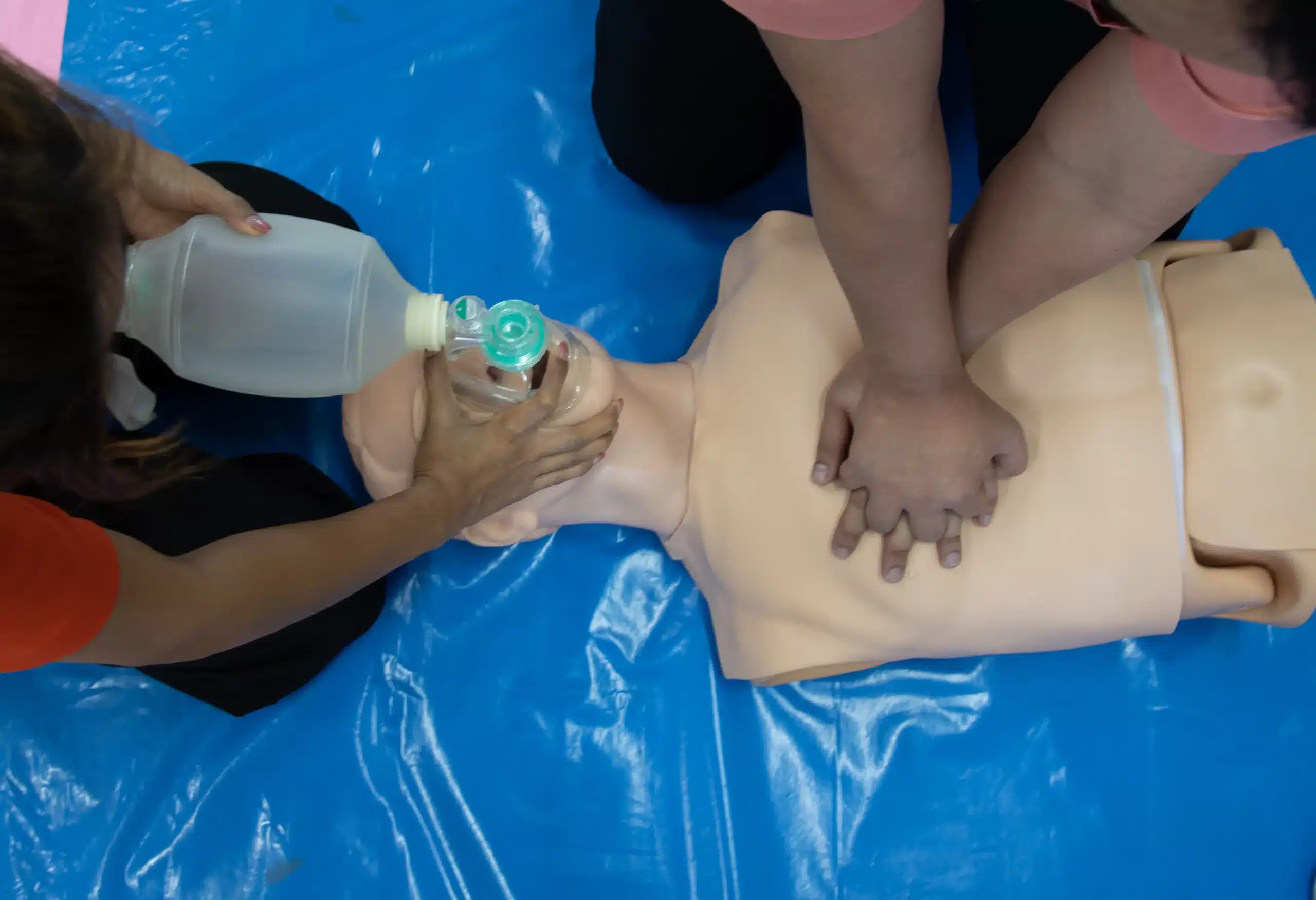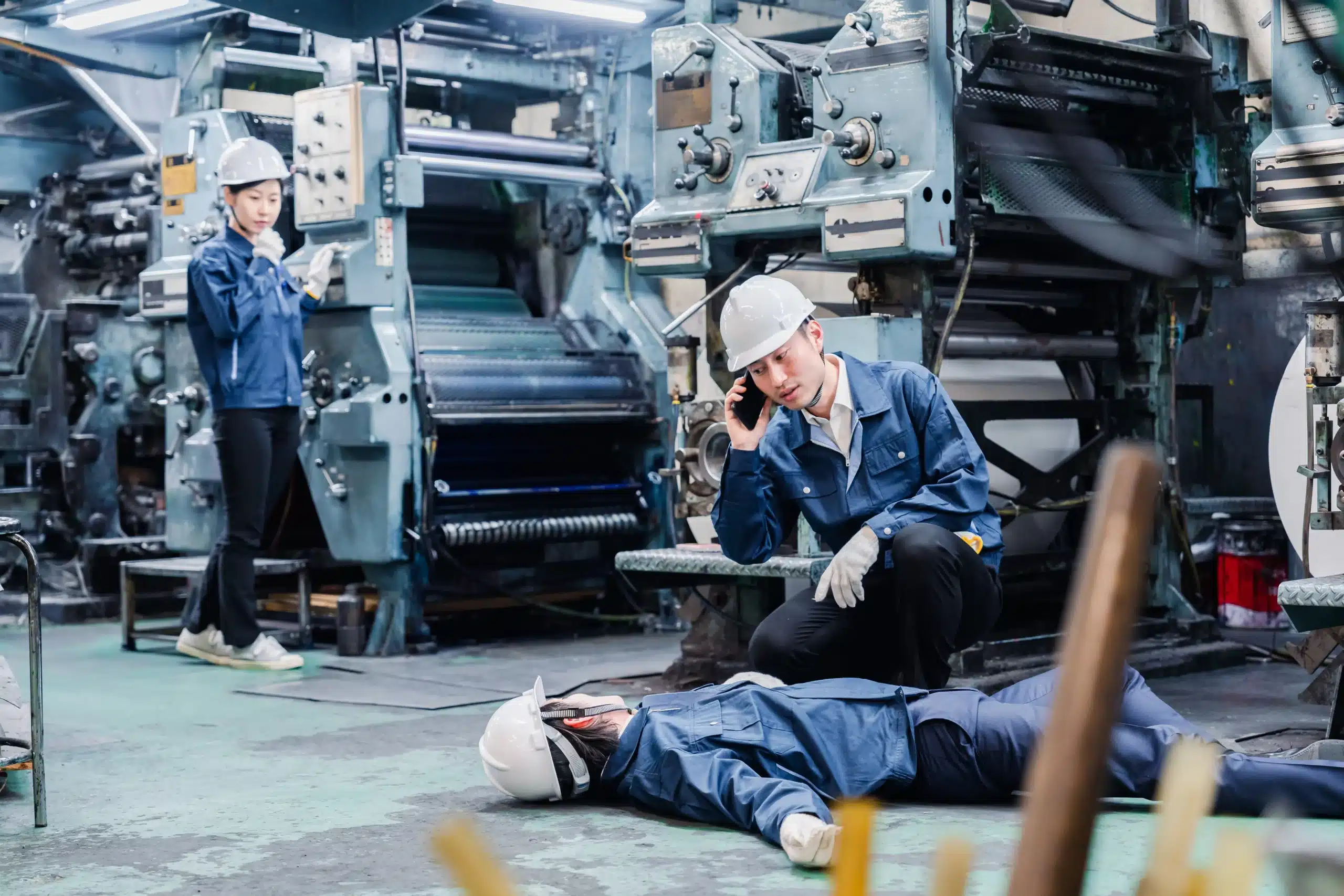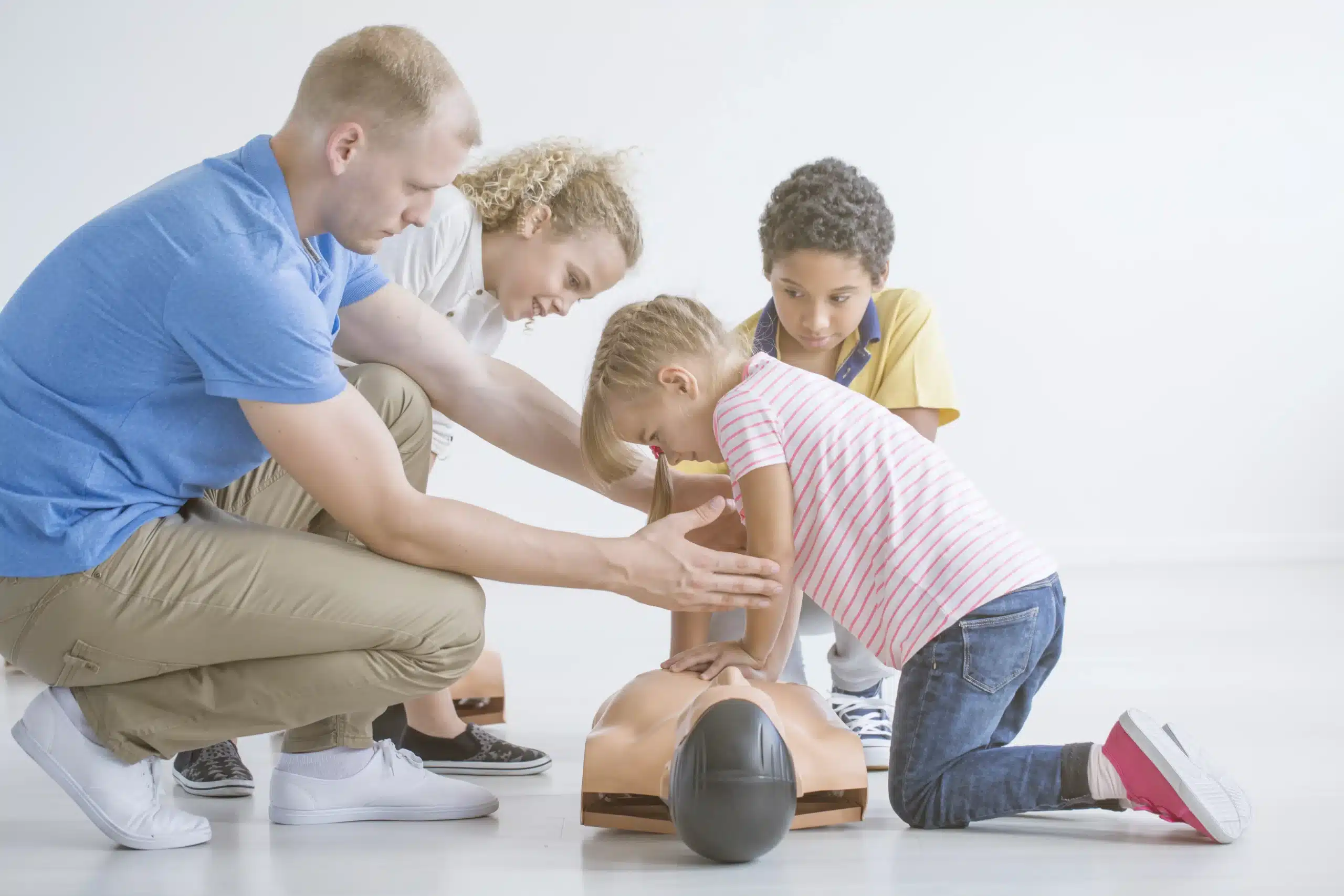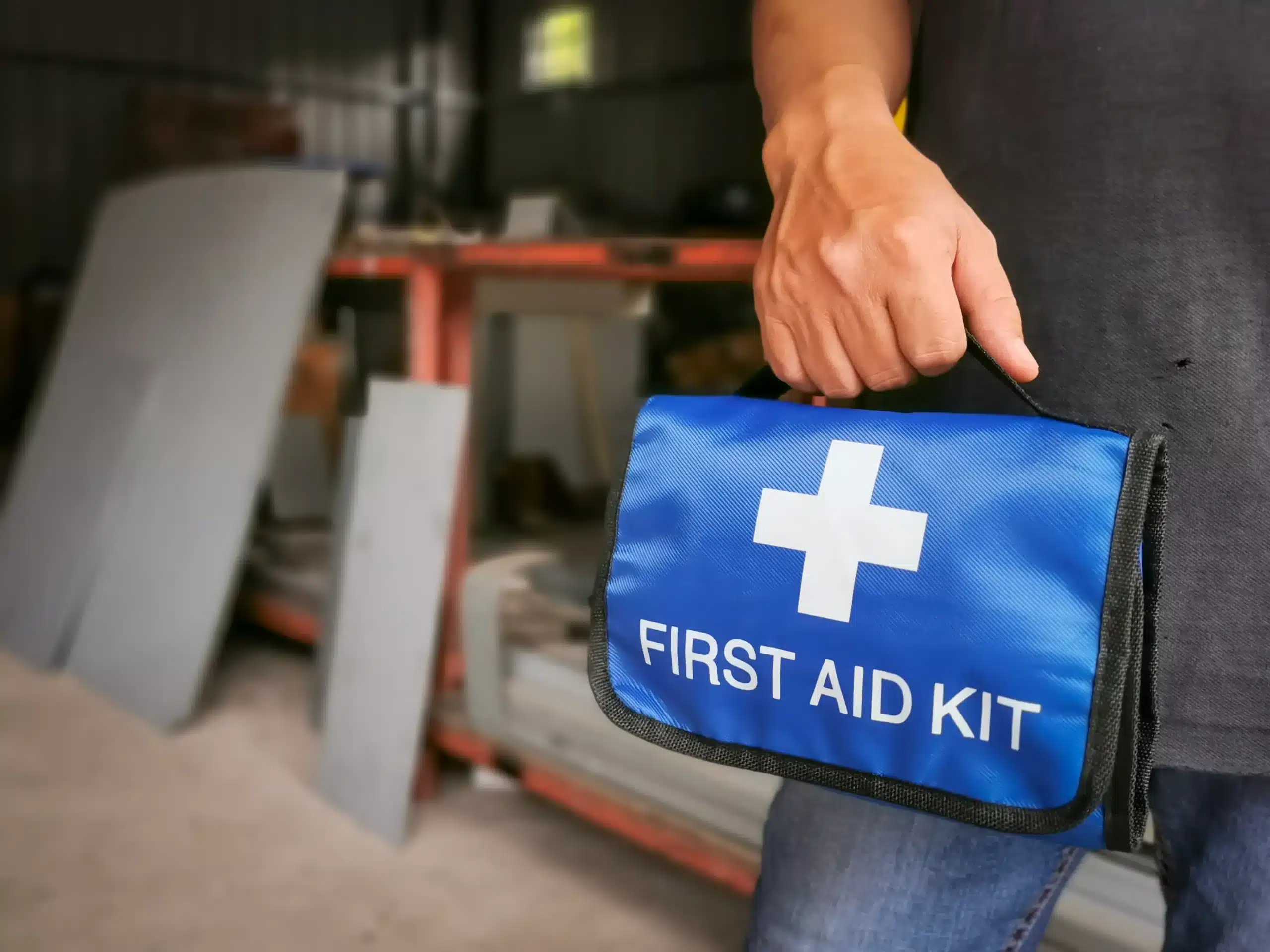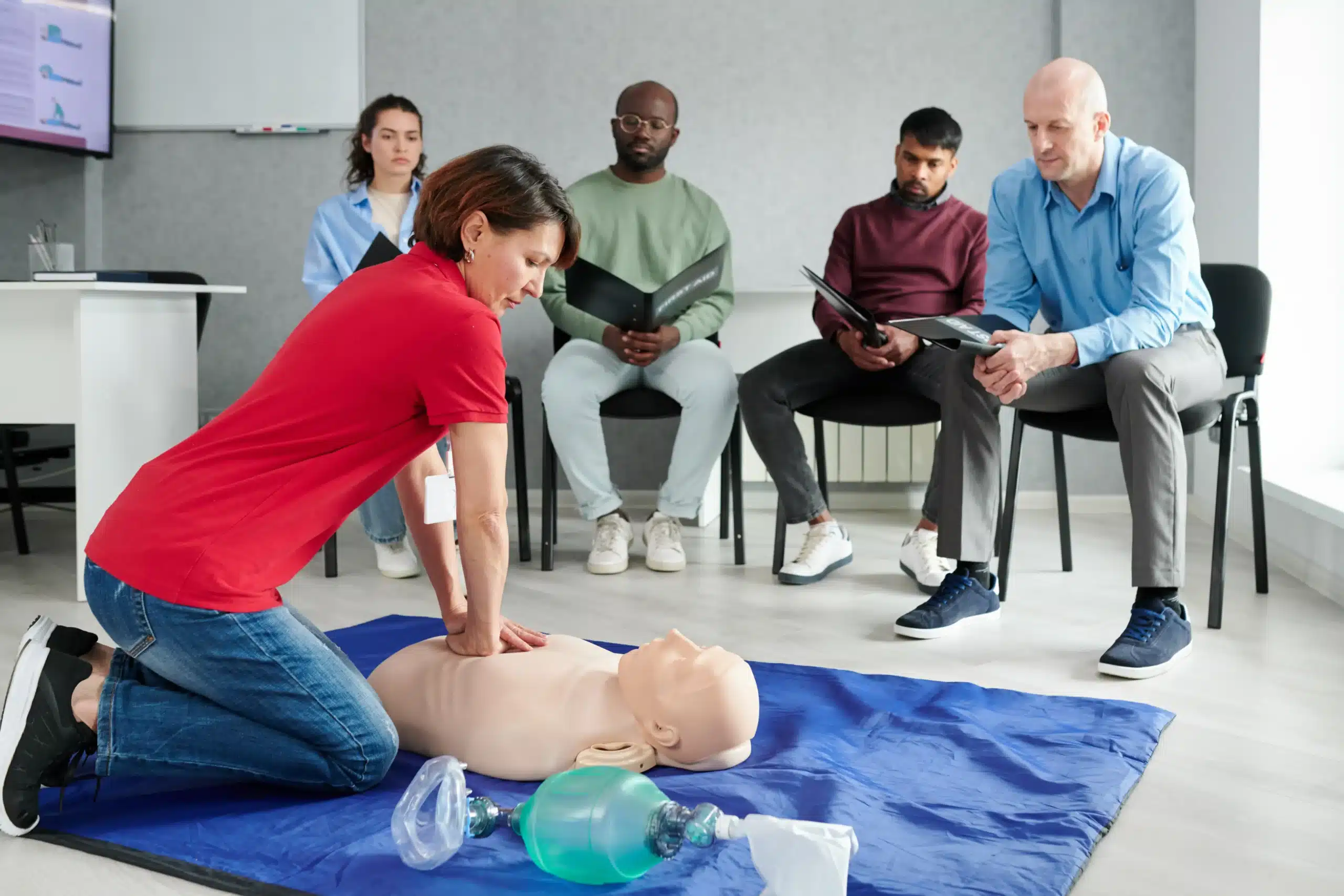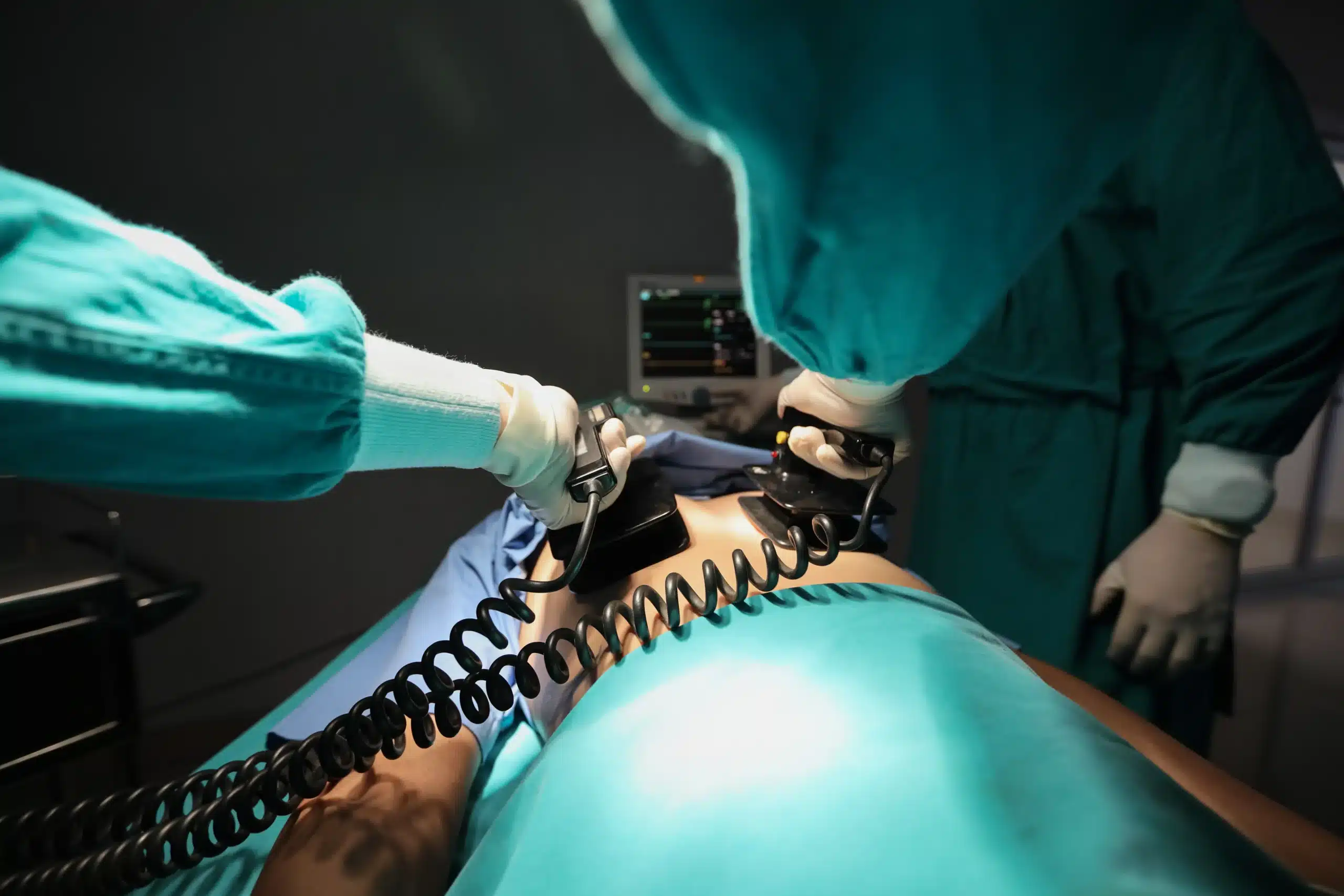Emergencies can happen anytime, anywhere. Being equipped with the skills to respond effectively can make all the difference. BLS certification empowers you to provide critical care in those crucial moments, but maintaining those skills requires regular recertification. Finding a convenient and affordable “BLS recertification near me” is the first step. This guide simplifies the process, providing a step-by-step overview of BLS recertification, from understanding the requirements to choosing the right course and preparing for your skills assessment. We’ll explore different learning formats, discuss costs, and offer tips for staying up-to-date on the latest guidelines. Let’s ensure you’re always prepared to act confidently and effectively when it matters most.
Key Takeaways
- Regular BLS recertification keeps your lifesaving skills sharp and ensures you’re using the most current techniques. This is crucial for providing high-quality care and maintaining your credentials.
- Finding the right course involves considering your learning style, the provider’s reputation, and the overall value. Look for AHA-compliant training and don’t hesitate to ask about discounts.
- Stay proficient by practicing your BLS skills regularly and staying informed on the latest guidelines. Resources like the AHA website and continuing education opportunities can help you maintain your expertise.
What is BLS Recertification & Why Does It Matter?
This section clarifies what Basic Life Support (BLS) entails and why staying up-to-date with your BLS skills is so important. Whether you’re a seasoned healthcare provider or new to the field, understanding the value of BLS recertification is key to ensuring you’re prepared for any emergency.
What is Basic Life Support (BLS)?
Basic Life Support (BLS) encompasses a range of lifesaving techniques used in critical situations. These emergencies can include a blocked airway (choking), breathing difficulties, and cardiac arrest. BLS certification equips individuals—from healthcare professionals to everyday people—with the skills to respond effectively and potentially save lives. Core components of BLS include CPR (cardiopulmonary resuscitation) and using automated external defibrillators (AEDs). These skills are essential for anyone working in healthcare and beneficial for anyone who wants to be prepared to help in a crisis.
Why Stay Current with BLS Skills?
Regularly renewing your BLS certification is crucial for several reasons. First, it ensures you’re always practicing the most up-to-date, evidence-based techniques. Medical guidelines and best practices evolve, and recertification keeps your skills aligned with these changes. Second, maintaining a current BLS certification is often a job requirement, especially in healthcare roles. It demonstrates your commitment to patient safety and high-quality care. Finally, staying current with your BLS skills simply gives you the confidence to respond effectively in an emergency. Knowing you have the right training can make all the difference in a critical situation. BLS recertification classes are designed to refresh your knowledge and skills, ensuring you’re always ready to provide assistance when it matters most.
Find the Best BLS Recertification Providers Near You
Finding the right BLS recertification provider is key to a smooth and valuable learning experience. Several respected organizations and institutions offer high-quality courses. Let’s explore some of your options:
American Heart Association (AHA)
The American Heart Association sets the standard for many healthcare training protocols. They offer comprehensive BLS recertification courses designed for healthcare providers, including classroom and blended learning formats. This flexibility lets you choose the learning style that suits you best. AHA certification is widely recognized and respected in the medical field. Sunnyvale CPR Classes offers the lowest prices on AHA courses, including BLS and ACLS.
American Red Cross
The American Red Cross is another well-known provider of BLS recertification. Their courses refresh essential skills and extend your certification. Check their website for course availability in your area.
National Safety Council
The National Safety Council offers various CPR and first aid training courses, including BLS recertification. They focus on practical skills and workplace safety, making them a good option for many professionals.
ProTrainings
ProTrainings focuses on flexible online BLS certification and recertification. Their online format allows healthcare professionals to complete training at their own pace, which can be especially helpful for busy schedules.
Health & Safety Institute (HSI)
HSI offers a range of BLS training options, both online and in-person. This variety allows you to choose the format that best fits your learning preferences and schedule.
Local Healthcare Institutions & Training Centers
Don’t forget to check with local hospitals, clinics, and community centers. Many offer BLS recertification courses, often conveniently located. For those in and around Sunnyvale, Santa Clara, and San Jose, Sunnyvale CPR Classes offers convenient and affordable options. We even have discounts for group classes! Plus, our low price guarantee ensures you’re getting the best value in Santa Clara County.
Compare BLS Recertification Course Formats
Choosing the right BLS recertification course format depends on your learning style, schedule, and preferences. Let’s break down the pros and cons of each option to help you decide what’s best for you:
In-Person Classes: Hands-on Experience
In-person BLS recertification classes offer a structured learning environment with direct interaction with a certified instructor. This format excels in providing hands-on training, allowing you to practice skills like CPR and using an AED in a controlled setting. You’ll receive immediate feedback, ensuring you’re performing techniques correctly. This is especially beneficial for kinesthetic learners who learn best by doing. In-person CPR classes also offer the opportunity to ask questions and learn from the experiences of other participants. However, in-person classes require you to adhere to a fixed schedule and commute to a specific location, which may not be ideal for everyone.
Online Courses: Flexibility and Convenience
Online BLS recertification courses provide the ultimate flexibility. You can learn at your own pace, anytime, anywhere, making them perfect for busy professionals or those with unpredictable schedules. Online BLS certification covers the same material as traditional courses, including videos, interactive exercises, and downloadable resources. This format allows you to review specific sections as needed and tailor your learning experience. While online courses offer convenience, they may not provide the same level of hands-on practice as in-person classes. However, many online courses now incorporate interactive simulations and require in-person skills checks to ensure competency. Remember, your BLS renewal can happen up to 30 days after expiration, so online courses offer a convenient way to quickly update your certification.
Hybrid Options: Blend Digital and Practical Learning
Hybrid BLS recertification courses combine the best of both worlds. These courses typically involve completing the cognitive portion of the training online, followed by an in-person skills session. This blended learning approach offers flexibility while still providing the opportunity for hands-on practice and personalized instruction. Our BLS certification classes offer hybrid options, allowing you to choose a format that fits your needs. Streamlined renewal courses like the RQI program, which combines online learning with hands-on practice, are also available. This format is ideal for those who prefer the convenience of online learning but also value the benefits of hands-on training and instructor feedback.
Consider Costs & Value
When choosing a BLS recertification course, think about the overall value, not just the sticker price. Balancing cost with quality instruction and a recognized certification is key to making a smart investment in your skills.
Typical Price Ranges
BLS recertification classes in Sunnyvale typically cost around $120. This usually covers your training materials, skills testing, and your two-year certification card. Initial BLS certification courses are also generally priced around $120, including everything you need to get certified. Keep in mind that prices can vary based on the training provider and the format of the course (in-person, blended, or online). For more information on BLS courses in Sunnyvale, visit the Safety Training Seminars website. If you’re exploring BLS renewal options, check out this helpful guide specifically for Sunnyvale.
Additional Fees
While the advertised price often covers the core components of the course, be aware of potential extra fees. Some providers might charge separately for things like online access codes, physical manuals, or expedited certification card processing. Before committing to a course, ask about any additional costs to avoid surprises. See if the training center offers group discounts—this can be a great way to save money, especially if you’re recertifying with colleagues or friends.
Get the Best Value for Your Recertification
Finding the best value doesn’t always mean finding the cheapest option. Look for providers who offer a low-price guarantee, like Safety Training Seminars in Santa Clara County. This ensures you’re getting a competitive price for quality training. Many providers also offer discounts for BLS renewals, making it more affordable to maintain your certification. A solid, reputable provider will offer comprehensive training that meets the latest guidelines, experienced instructors, and a streamlined certification process. These factors contribute to the overall value of your recertification, ensuring you receive high-quality training and a recognized credential.
Understand Enrollment Requirements & Course Details
Before signing up for your BLS recertification course, take a few minutes to understand the requirements and what the class entails. Knowing the process ahead of time makes everything smoother.
Prerequisites for BLS Recertification
The main prerequisite for BLS recertification is holding a current—or recently expired—BLS provider card. Most providers, including the American Red Cross, require your previous certification to be current or to have lapsed within the past 30 days. This requirement ensures you have the foundational knowledge needed to build upon in the recertification course. If your card is expired beyond that timeframe, you’ll likely need to take the full BLS course again rather than a refresher.
Required Documentation
When you register, you’ll need to verify your current BLS certification. This usually involves providing a copy of your current provider card. If you can’t locate your card, resources are available to help. For example, the American Heart Association (AHA) offers resources to verify your certification status. Having your documentation in order streamlines the enrollment process.
Course Duration & Completion Timeframes
BLS recertification courses are designed to refresh your skills efficiently. They typically run shorter than the initial certification course, usually between 2.5 and 4.5 hours depending on the provider and course format. Remember that your BLS certification is valid for two years. You can renew your certification up to 30 days after the expiration date with a recertification course. However, it’s always a good idea to plan and recertify before your card expires to avoid any lapse in your credentials. Check with your employer or regulatory body for specific requirements.
Choose the Right BLS Recertification Course
Finding the right BLS recertification course takes a little research, but it’s well worth the effort to ensure you’re getting top-notch training. Here’s a breakdown of how to approach the selection process:
Assess Your Learning Style & Schedule
First, consider your learning style. Do you prefer a traditional classroom setting with in-person interaction, or are you more comfortable with the flexibility of online learning? Think about your schedule, too. If you’re balancing work and family, an online course might be easier to manage. In-person classes, on the other hand, provide immediate feedback and hands-on practice. Some providers offer blended learning, combining online modules with in-person skills sessions. Figure out what combination works best for you. When selecting a BLS renewal course, evaluate your learning preferences, the provider’s reputation (AHA certification is key), and the overall cost. Watch out for hidden fees and ask about group discounts.
Verify Provider Credentials & Accreditation
Choosing a course from a reputable provider is essential. Look for accreditation from a recognized organization like the American Heart Association (AHA). This guarantees the course content follows the latest guidelines. Safety Training Seminars, for instance, has offered CPR, BLS, ACLS, PALS, and First Aid classes in Sunnyvale since 1989 and delivers AHA-compliant training. See if the provider offers different course formats, like in-person and blended learning. This shows their commitment to accommodating various learning styles. You can also confirm the provider’s credentials and accreditation on their website or by reaching out to them directly.
Evaluate Instructor Qualifications
The instructor’s expertise significantly impacts your learning. Look for instructors with substantial experience and excellent communication skills. Reading reviews can offer valuable insights into an instructor’s teaching style and effectiveness. For example, a Yelp review states, “Quan is a great instructor. He is able to explain medical concepts in a clear and concise way.” This kind of feedback helps you determine if an instructor’s approach suits your learning style. Don’t hesitate to inquire about the instructors’ qualifications and experience.
Read Reviews & Testimonials
Before signing up for a course, read reviews and testimonials from previous students. These firsthand accounts provide helpful perspectives on the course content, instructor quality, and overall experience. Pay attention to comments about the practical application of skills, the clarity of instruction, and the instructor’s ability to foster a positive learning environment. Reviews like, “I learned a lot more here than at other classes,” or “Wonderful! Highly recommend for all professionals!” can boost your confidence in your decision. Websites like BLS Test Center often include reviews and testimonials. Consider checking local resources like Yelp for more feedback.
Prepare for Your BLS Recertification
Refresh Your Knowledge
Before your BLS recertification course, take some time to review the core concepts. This will help you feel confident and prepared for the skills assessment. A quick refresher on CPR techniques, recognizing signs of a heart attack or stroke, and understanding the chain of survival can make all the difference. Remember, BLS certification empowers anyone to save lives—from healthcare professionals to community members. It provides essential skills applicable in any emergency, so brushing up on the fundamentals is always worthwhile. You can find helpful resources and refreshers online, or check out our guide on BLS in Sunnyvale.
What to Expect During Recertification
BLS recertification involves both a cognitive and a psychomotor component. Expect a review of key BLS principles and procedures, followed by a hands-on skills test. You’ll demonstrate your proficiency in CPR, using an AED, and providing rescue breaths. Safety Training Seminars offers a combination of online learning and in-person skills sessions, allowing you to find a format that fits your schedule. BLS renewal courses typically cost around $120 in Sunnyvale, covering the online portion, the skills assessment, and your BLS certification card.
Tips for BLS Recertification Success
To ensure a smooth recertification process, start by choosing the right course. Consider your learning style—do you prefer online learning or in-person instruction? Also, confirm that the provider offers American Heart Association (AHA) certification, which is widely recognized and accepted. Finally, compare costs and be sure to ask about any additional fees. Explore options like our group discounts to get the best value. Renewing your BLS certification ensures you’re using the most current techniques and best practices, so adequate preparation is key.
Maintain Your BLS Skills After Recertification
Getting recertified is a great first step, but staying sharp on your BLS skills requires a commitment to ongoing practice. Think of it like any other skill—regular use keeps you proficient and ready to respond effectively in a real emergency.
Ongoing Practice Techniques
BLS certification empowers anyone to save lives. From healthcare professionals to community members, BLS training provides essential skills applicable in any emergency. Don’t let those skills get rusty. Regular practice is key to maintaining muscle memory and confidence. Consider joining practice sessions, if available, or creating scenarios with friends or family to rehearse your skills. Even simple things like reviewing the steps for CPR or practicing how to use an AED can make a big difference. For more tips on keeping your skills sharp, take a look at our guide to getting BLS certified in Sunnyvale.
Resources for BLS Guideline Updates
Staying up-to-date on the latest BLS guidelines is crucial. Changes in procedures and best practices happen periodically, so it’s important to stay informed. Organizations like the American Heart Association regularly publish updated guidelines. Subscribing to their newsletters or checking their website for updates can help you stay current. Safety Training Seminars also offers resources and updates on BLS guidelines, ensuring you’re always aware of the latest techniques. Our BLS certification classes offer a combination of online learning and in-person skills sessions, allowing you to find a format that fits your schedule. We also offer a low-price guarantee for our BLS certification courses in Santa Clara County.
Plan for Your Next Recertification
Don’t wait until the last minute to think about your next recertification. Renewing your BLS certification ensures you’re using the most current techniques and best practices. Mark your calendar with your expiration date and start planning a few months in advance. This will give you plenty of time to find a course that fits your schedule and budget. Check out our guide to BLS renewal in Sunnyvale for a simple, step-by-step process to help you prepare. Planning ahead takes the stress out of recertification and ensures you maintain your valuable BLS skills without interruption.
Related Articles
- BLS Renewal in Santa Clara: Find Courses & Compare Costs – Sunnyvale CPR Classes
- BLS Certification in San Jose: The Ultimate Guide – Sunnyvale CPR Classes
- BLS Renewal in Sunnyvale: Your Simple Guide – Sunnyvale CPR Classes
- BLS Certification in San Jose: The Ultimate Guide – Sunnyvale CPR Classes
Frequently Asked Questions
How long is my BLS certification valid? BLS certification cards are valid for two years. It’s recommended that you renew your certification before the expiration date to avoid any lapse in your credentials. You can recertify up to 30 days after your card expires.
What if my BLS card is expired? If your BLS card has been expired for more than 30 days, you’ll likely need to take the full BLS certification course again rather than a shorter recertification course. If it’s within the 30-day grace period, you can take a recertification course.
What’s the difference between BLS certification and recertification? Initial BLS certification courses provide comprehensive training in basic life support skills. Recertification courses are shorter refresher courses designed for those who already hold a BLS certification and need to renew it. Both involve a written or online exam and a skills test.
What if I lose my BLS card? If you lose your BLS card, contact the organization that issued your certification. They can typically provide documentation or a replacement card for a fee. The American Heart Association, for example, offers resources to verify your certification status and request a replacement card.
How can I practice my BLS skills between recertifications? Regular practice is key to maintaining your BLS skills. Consider reviewing the steps for CPR and using an AED periodically. You can also practice with friends, family, or colleagues, creating scenarios to rehearse your skills. Some training centers may offer practice sessions as well.
